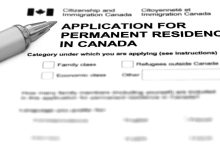Are you considering pursuing your higher education in Canada? With its renowned universities, diverse culture, and excellent academic opportunities, Canada has become a popular destination for international students. To study in Canada, you will need to obtain a study permit, also known as a student visa. This comprehensive guide will walk you through the process of applying for a Canada study visa step by step, ensuring you have all the necessary information to embark on your educational journey.
Outline:
- Introduction
- Eligibility Requirements
- Academic Requirements
- Financial Requirements
- English Language Proficiency
- Choosing the Right Institution and Program
- Application Process
- Researching and Selecting Programs
- Gathering Required Documents
- Applying Online or via Paper Application
- Paying the Application Fees
- Studying in Quebec
- Medical Examination and Insurance
- Proof of Funds
- Biometrics Appointment
- Visa Processing Time
- Receiving the Letter of Acceptance
- Preparing for Departure
- Accommodation and Living Arrangements
- Travel Arrangements
- Packing Essentials
- Arriving in Canada
- Post-Arrival Requirements
- Study Permit Activation
- Obtaining a Social Insurance Number (SIN)
- Opening a Bank Account
- Exploring Healthcare Options
- Familiarizing Yourself with the Campus
- Maintaining Student Status
- Full-Time Enrollment
- Academic Progress
- Extending Your Study Permit
- Conclusion
- FAQs
Introduction
Studying in Canada offers an incredible opportunity to gain a high-quality education, experience a multicultural environment, and develop a global perspective. However, before you can embark on this exciting journey, it is important to understand the application process for a Canada study visa.
Eligibility Requirements
Before applying for a Canada study visa, you must meet certain eligibility requirements set by the Canadian government. These requirements ensure that you have the necessary qualifications and financial resources to pursue your education in Canada.
Academic Requirements
To be eligible for a study permit, you must have been accepted by a designated learning institution (DLI) in Canada. DLIs are universities, colleges, and other educational institutions approved by the provincial or territorial government to host international students. You will need to provide proof of your acceptance by including a letter of acceptance from the DLI in your visa application.
Financial Requirements
Demonstrating that you have enough funds to cover your tuition fees, living expenses, and return transportation is crucial. The Canadian government requires you to prove your financial capacity by providing bank statements, scholarship letters, or a letter of financial support from your sponsor. The amount of money required may vary depending on the institution, location, and duration of your study program.
English Language Proficiency
Most Canadian institutions require proof of English language proficiency, such as the International English Language Testing System (IELTS) or the Test of English as a Foreign Language (TOEFL). Ensure that you meet the language requirements of your chosen institution before applying.
Choosing the Right Institution and Program
Selecting the right institution and program is a crucial step in your study abroad journey. Consider factors such as the reputation of the institution, program offerings, location, cost of living, and available scholarships. Research various universities and colleges in Canada to find the one that aligns with your academic goals and personal preferences.
Application Process
Once you have decided on your preferred institution and program, it’s time
to start the application process for your Canada study visa. Here’s a step-by-step guide to help you through the process:
Researching and Selecting Programs
Begin by researching different study programs offered by Canadian institutions. Consider factors such as the program’s curriculum, faculty, career prospects, and any specific admission requirements. Choose programs that align with your interests and future career goals.
Gathering Required Documents
Before you start your visa application, gather all the necessary documents. These typically include:
- Valid passport
- Letter of acceptance from a DLI
- Proof of financial support
- Academic transcripts and certificates
- Language proficiency test scores
- Medical examination results
Ensure that you have all the required documents in the correct format and that they are up to date.
Applying Online or via Paper Application
You can apply for a Canada study visa either online or through a paper application. Online applications are usually faster and more convenient. Visit the official website of Immigration, Refugees and Citizenship Canada (IRCC) to create an online account and complete the application form. Alternatively, you can download the application form, fill it out, and submit it by mail.
Paying the Application Fees
Pay the required application fees, which include the processing fee and the biometrics fee if applicable. The fees can be paid online using a credit card or through a bank draft. Make sure to keep the payment receipt as proof of payment.
Studying in Quebec
If you plan to study in the province of Quebec, you may have to apply for additional documents, such as a Certificat d’Acceptation du Québec (CAQ) and meet specific requirements set by the provincial government. Quebec has its own immigration policies separate from the rest of Canada.
Medical Examination and Insurance
Some students may be required to undergo a medical examination to ensure they meet the health requirements set by the Canadian government. Additionally, it is highly recommended to obtain health insurance to cover any medical expenses during your stay in Canada. Check with your institution or insurance providers to understand the options available to you.
Proof of Funds
As part of your visa application, you will need to demonstrate that you have sufficient funds to cover your tuition fees and living expenses in Canada. The exact amount required varies depending on factors such as the location of your institution and the duration of your program. Ensure you have the necessary funds and provide the required documents as evidence.
Biometrics Appointment
As part of the application process, you may need to schedule a biometrics appointment to provide your fingerprints and photograph. Biometrics collection helps in establishing your identity and is often required for study permit applications. Follow the instructions provided by the Canadian visa office to schedule and attend your biometrics appointment.
Visa Processing Time
The processing time for a Canada study visa can vary depending on various factors, including the country or region where you are applying from. It is advisable to apply well in advance and check the estimated processing time on the official IRCC website. Keep in mind that processing times may be longer during peak application periods.
Receiving the Letter of Acceptance
Once your study permit application is approved, you will receive a Letter of Introduction from the Canadian visa office. This letter is not your study permit but serves as proof that your application was successful. Upon arrival in Canada, you will present this letter to the immigration officer at the port of entry, who will issue your actual study permit.
Preparing for Departure
Before leaving for Canada, there are several important things to consider to ensure a smooth transition:
Accommodation and Living Arrangements
Research and arrange your accommodation in advance. Many institutions provide on-campus housing or can assist you in finding suitable off-campus options. Familiarize yourself with the cost of living in your chosen city and budget accordingly.
Travel
Arrangements
Book your flight tickets and plan your travel to Canada. Make sure you have the necessary travel documents, including your passport, study permit approval letter, and other identification.
Packing Essentials
Prepare a checklist of essential items to pack for your journey to Canada. Consider the weather conditions in your study destination and pack accordingly. Don’t forget to carry important documents, such as your acceptance letter, academic certificates, and financial documents.
Arriving in Canada
Once you arrive in Canada, your study permit will be issued at the port of entry by an immigration officer. Ensure that you have all the required documents readily accessible, as the officer may ask for them. The officer will verify your identity, check your study permit approval letter, and may ask you questions about your studies or financial resources.
Post-Arrival Requirements
After arriving in Canada, there are a few important tasks to complete to settle in smoothly:
Study Permit Activation
Activate your study permit by checking the expiry date on the permit. It is essential to maintain a valid study permit throughout your stay in Canada. Make a note of the expiry date and ensure that you apply for an extension well before it expires if necessary.
Obtaining a Social Insurance Number (SIN)
If you plan to work in Canada during your studies or after graduation, you will need a Social Insurance Number (SIN). Visit a Service Canada office with the required documents to apply for a SIN. The SIN is essential for tax purposes and accessing various government services.
Opening a Bank Account
Opening a bank account in Canada will make it easier to manage your finances. Research different banks and their services to choose one that best suits your needs. Visit a local branch with your study permit, identification documents, and proof of address to open an account.
Exploring Healthcare Options
Ensure you have health coverage during your stay in Canada. Some provinces provide healthcare coverage to international students, while others may require you to purchase private health insurance. Familiarize yourself with the healthcare system and the services available to you.
Familiarizing Yourself with the Campus
Take the time to explore your campus and attend orientation programs. Familiarize yourself with the facilities, academic resources, and support services available to international students. This will help you settle into your new environment and make connections with fellow students.
Maintaining Student Status
To maintain your student status in Canada, it is important to adhere to certain requirements:
Full-Time Enrollment
Ensure you are enrolled as a full-time student as required by your study permit. Falling below the minimum course load could result in a violation of your student status. If you need to change your program, transfer institutions, or take a break from your studies, consult your institution’s international student services office for guidance.
Academic Progress
Maintain satisfactory academic progress to remain in good standing with your institution. Failure to meet the academic requirements may lead to academic probation or even termination of your study permit.
Extending Your Study Permit
If your study program in Canada extends beyond the expiry date of your study permit, you will need to apply for an extension. Start the extension process well in advance to avoid any gaps in your legal status.
Conclusion
Applying for a Canada study visa can be an intricate process, but with the right information and preparation, you can navigate it successfully. From fulfilling the eligibility requirements to preparing for your arrival in Canada, following the steps outlined in this guide will help ensure a smooth and enjoyable study abroad experience. Remember to always stay informed, seek guidance from your chosen institution’s international student services, and be proactive in meeting the necessary deadlines and requirements.
FAQs
- Can I work while studying in Canada?
- Yes, most international students in Canada are eligible to work part-time on and off-campus during their studies.
- Can I bring my family with me to Canada on a study visa?
- In some cases, your spouse or common-law partner may be eligible for an open work permit, and your dependent children may be eligible for study permits.
- Can I apply for a study permit after arriving in Canada as a visitor?
- It is generally recommended to apply for a study permit before arriving in Canada. However, under certain circumstances, you may be able to apply for a study permit from within Canada.
- Can I apply for permanent residency in Canada after completing my studies?
- Yes, Canada offers various immigration programs for international graduates to transition to permanent residency.
- How long can I stay in Canada after completing my studies?
- Depending on the length of your study program, you may be eligible for a post-graduation work permit, allowing you to stay and work in Canada temporarily after graduation.





